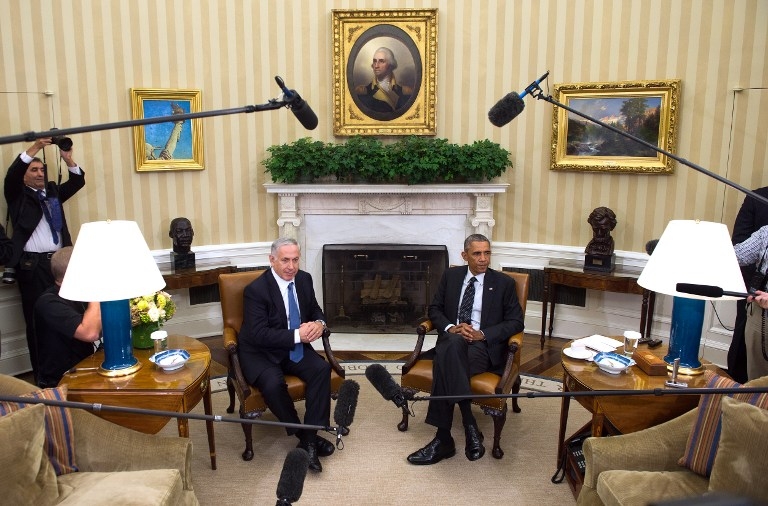Netanyahu, Obama to meet at White House in November

The White House on Wednesday announced that President Barack Obama will host Israeli Prime Minister Benjamin Netanyahu on 9 November, their first meeting since a fierce row over the Iranian nuclear deal.
US-Israeli relations are at one of their lowest points in decades, fueled by animosity between Obama and Netanyahu.
Spokesman Josh Earnest said implementing the Iran accord that Netanyahu opposed would be on the agenda of a visit designed as "a demonstration of the deep and enduring bonds between the United States and Israel."
It is a far cry from Obama's refusal to meet with the prime minister in March when the Israeli leader came to the US following an invitation that was made by politicians without input from the White House.
House Speaker John Boehner had invited Netanyahu to speak about Iran at the height of the US's political dealings on the Iran nucelar deal.
Israel could prove to be a help or hindrance to Obama in keeping the deal on track, ratcheting up domestic pressure on the White House should Iran stall or falter on implementation.
The deal would see Iran curb its nuclear programme in return for sanctions relief.
But the Netanyahu-Obama meeting will also be about mending fences.
After years of frosty relations, Netanyahu stridently opposed a deal championed by Obama as the best way of preventing Iran from getting a nuclear weapon.
The Israeli prime minister described the accord, an important piece of Obama's foreign policy legacy, as a "stunning, historic mistake."
The White House regarded Netanyahu's appearance before a joint session of Congress in April - to call directly on US lawmakers to scupper the deal - as an affront.
Obama had pointedly refused to meet Netanyahu when he was in Washington to make the address.
The two men clashed again during Netanyahu's re-election campaign, when he rejected a two-state solution, an issue sure to come up in the talks.
With the peace process in deep freeze there are growing fears that tensions like those flaring at Jerusalem's flashpoint Al-Aqsa mosque compound could spark a broader Palestinian uprising.
"The president also looks forward to discussing Israel's relations with the Palestinians, the situation in the Gaza Strip and the West Bank, and the need for the genuine advancement of a two-state solution," Earnest said.
Security ties between the United States and Israel will also be on the agenda.
The White House has floated the idea of a deeper security compact with Israel, but has said the offer has not yet been taken up.
"The president has indicated on a number of occasions his desire to begin consultations with our Israeli allies about how to further deepen that cooperation," Earnest said earlier this month.
Stay informed with MEE's newsletters
Sign up to get the latest alerts, insights and analysis, starting with Turkey Unpacked
Middle East Eye delivers independent and unrivalled coverage and analysis of the Middle East, North Africa and beyond. To learn more about republishing this content and the associated fees, please fill out this form. More about MEE can be found here.

